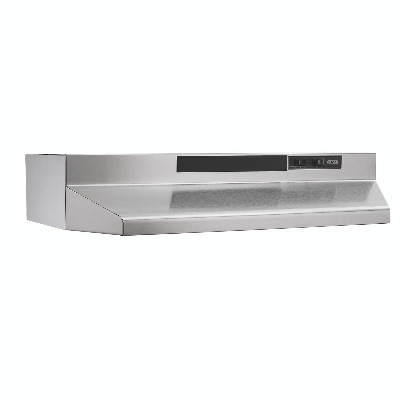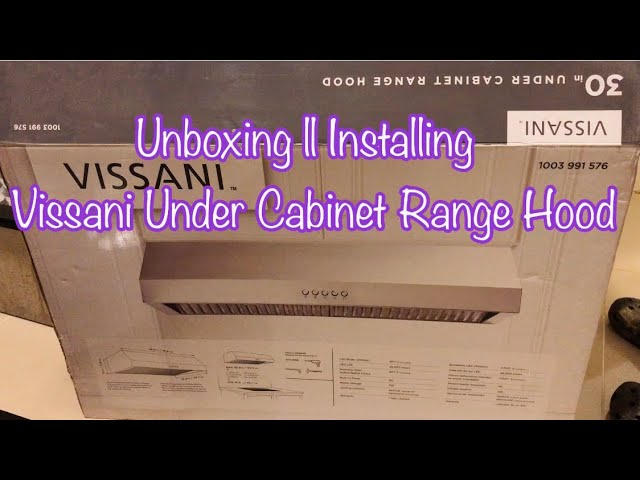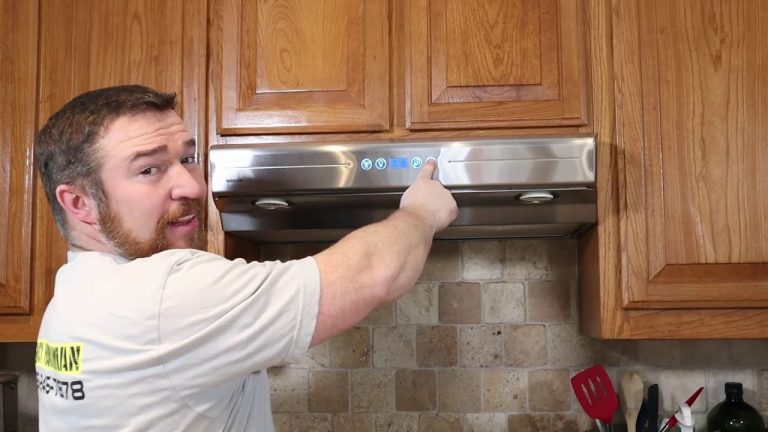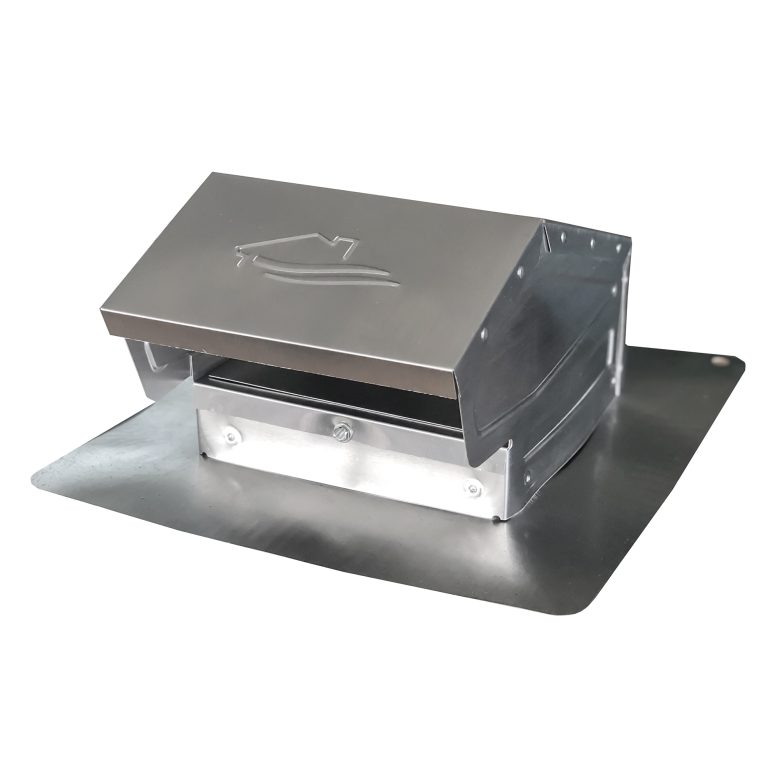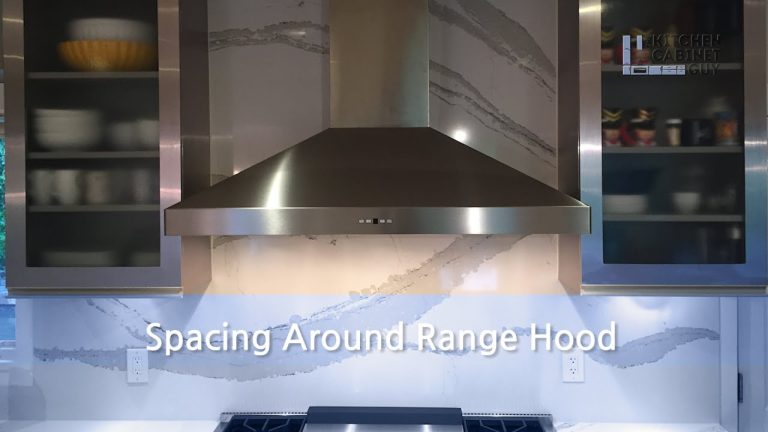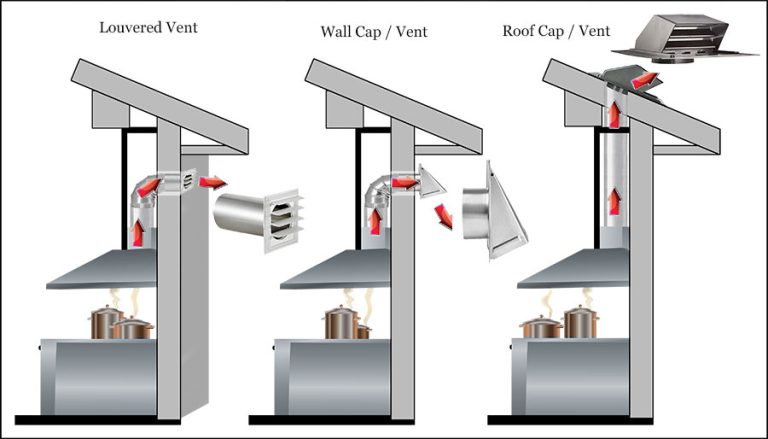A range hood that turns on by itself often indicates a malfunctioning switch or a wiring issue. Regular maintenance and checking the electrical connections can help resolve this problem.
Range hoods play a crucial role in kitchen ventilation, removing smoke, odors, and grease. A properly functioning range hood enhances air quality while cooking, making it essential for any kitchen. If your range hood activates without command, it can cause confusion and frustration.
This issue may arise from faulty electronics, sensor malfunctions, or poor wiring. Understanding the root cause can prevent further complications and ensure safety. Regular inspections can also prolong the lifespan of your appliance. Take the time to troubleshoot or consult a professional for a thorough diagnosis and repair. Keeping your range hood in top condition is vital for a healthy cooking environment.
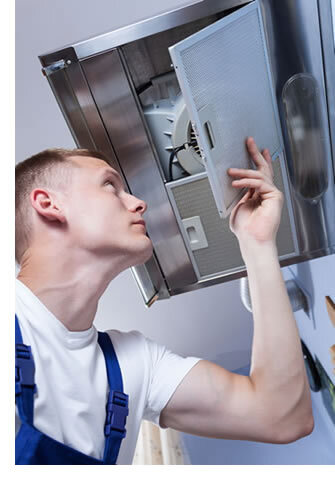
Credit: appliance-rescue-service.com
The Mysterious Case Of The Self-starting Range Hood
Several factors can cause a range hood to turn on by itself. Moisture from cooking can trigger the sensors. Heat from the stove may also activate the fan. Sometimes, faulty wiring leads to unexpected starts. Power surges can cause appliances to act strangely.
Check for any obstructions around the range hood. Ensure that all switches and buttons are working correctly. Regular maintenance is essential for proper function. Always ensure the unit is turned off when not in use.
For safety, turn off the power before troubleshooting. Use insulated tools to prevent shocks. If unsure, contact a professional for assistance. Avoid attempting complex repairs without proper training.

Credit: www.searspartsdirect.com
Initial Diagnostic Steps
Start by checking the power supply. Ensure the circuit breaker is not tripped. Look for loose wires or damaged connections. A faulty power source can cause strange behaviors.
Next, perform a visual inspection. Check the range hood for any visible signs of damage. Look for burn marks or smoke. These could indicate serious issues.
Ensure the control panel is functioning. Sometimes buttons may stick or malfunction. A stuck button might cause the hood to turn on by itself.
Understanding Range Hood Sensors
The heat sensor in a range hood detects high temperatures. It automatically activates the fan. This helps to remove smoke and steam quickly. Proper functioning keeps your kitchen safe and comfortable.
Smoke and steam detectors work alongside the range hood. They sense excess smoke and trigger the fan. This ensures proper ventilation. Regular maintenance of these sensors is crucial for effective operation. Clean the detectors to keep them working well.
Control Panel And Wiring Concerns
Many range hoods can turn on by themselves. This often indicates control board issues. The control panel may malfunction or short circuit. Inspecting the control board is essential for proper function.
Electrical connections should be tested regularly. Loose or damaged wires can cause problems. Ensure all connections are secure and intact. A multimeter can help check voltage levels.
| Potential Issues | Description |
|---|---|
| Control Board Malfunction | May cause the hood to turn on randomly. |
| Loose Connections | Can lead to inconsistent power supply. |
| Short Circuits | May create electrical surges and erratic behavior. |
Environmental Factors And False Triggers
Range hoods can turn on by themselves due to external heat sources. These sources include stoves, ovens, or even sunlight. Any high temperature can trigger the fan.
Another factor is interference from nearby appliances. Devices like microwaves can cause false signals. This may confuse the range hood into turning on.
Humidity and moisture also play a significant role. High humidity can affect the range hood’s sensors. Moist air may lead to unexpected activations.
Keeping the area dry helps reduce these issues. Regular maintenance is key to ensuring optimal performance. Check for any moisture buildup around the unit.
Professional Intervention Vs. Diy Repair
Calling a technician is a smart choice if the range hood turns on by itself often. They can diagnose complex issues that may be hard to spot. If the problem is wiring-related, expert help is crucial for safety.
DIY repairs can save money but come with risks. Understanding the issue is essential before attempting repairs. Mistakes can cause further damage or safety hazards. Always weigh your skills against the complexity of the problem.
| DIY Repair Pros | DIY Repair Cons |
|---|---|
| Cost-effective | Can lead to mistakes |
| Empowering experience | May void warranty |
| Flexible timing | Limited tools |
Maintenance Tips To Prevent Future Occurrences
Regular cleaning helps keep your range hood working well. Grease and dirt can make it turn on by itself. Clean the filters and surfaces every month. Use warm, soapy water for best results.
Check the fan and motor regularly. Dust and debris can cause issues. Ensure everything is free of blockages. This helps the hood work properly.
For sensor calibration, follow the manufacturer’s instructions. This keeps the sensors accurate. Test the sensors every few months. Adjust them if necessary to prevent false activations.
Care for the wiring and connections. Inspect them for wear or damage. Replace any faulty parts to avoid problems. Proper maintenance can save time and money.

Credit: vp-repair.com
Advanced Troubleshooting Techniques
Using diagnostic tools can help find problems with your range hood. A multimeter checks electrical issues. An oscilloscope can analyze electrical signals. These tools help ensure everything works correctly.
Performing firmware updates is essential. Check your range hood’s manual for instructions. Many manufacturers provide updates online. Keeping software current can fix bugs and improve performance.
Contacting manufacturer support is also a good option. They can provide expert advice. Support teams know common problems and solutions. Don’t hesitate to reach out for help.
Frequently Asked Questions
Why Does My Range Hood Turn On By Itself?
Your range hood may turn on by itself due to a malfunctioning switch or sensor. Sometimes, the control board may have a short circuit. Dust and debris can also interfere with the sensors. Regular maintenance can help prevent these issues and ensure your range hood functions correctly.
Is It Safe If My Range Hood Activates Alone?
While it may not pose an immediate danger, a range hood that turns on by itself can indicate an electrical issue. It’s essential to address this problem promptly to prevent potential hazards. Consult a professional to inspect the unit and ensure your kitchen remains safe.
How Can I Stop My Range Hood From Activating Randomly?
To stop your range hood from activating randomly, check the control panel and wiring for any damage. Cleaning the sensors and switches can also help. If the issue persists, consider resetting the unit or consulting a technician for a thorough inspection and repair.
What Could Cause A Range Hood To Malfunction?
Several factors can cause a range hood to malfunction. These include faulty wiring, worn-out switches, or malfunctioning sensors. Additionally, power surges can damage the control board. Regular maintenance can help identify these issues before they escalate into bigger problems.
Conclusion
Experiencing a range hood that turns on by itself can be frustrating. Understanding the potential causes is crucial for effective troubleshooting. Regular maintenance and checking wiring can prevent future issues. If problems persist, consulting a professional may be necessary. Stay proactive to ensure your kitchen remains safe and functional.
